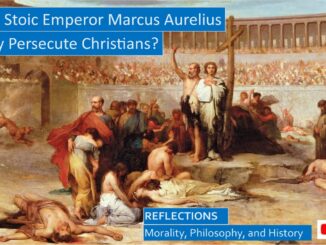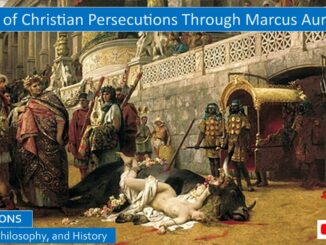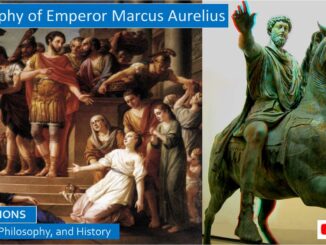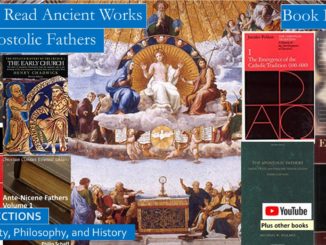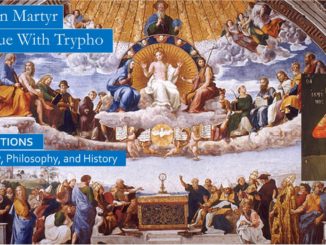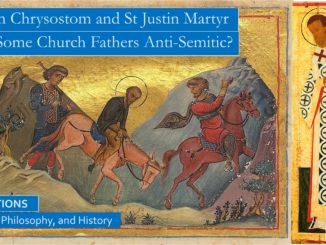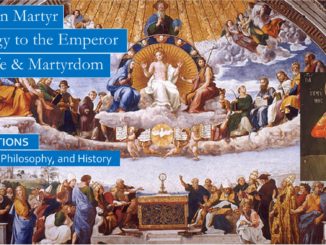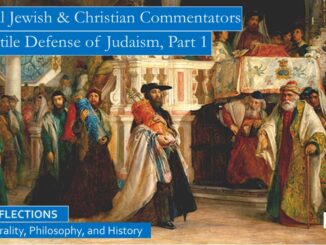
Medieval Jewish and Christian Commentators, My Gentile Defense of Judaism, Part 1
At roughly the time of Jesus, an inquirer requested of both Rabbi Shammai and Rabbi Hillel, “Convert me to Judaism on condition that you will teach me the entire Torah while I stand on one foot.” Shammai pushed the man away with the building rod he was holding. Undeterred, the man then came before Hillel with the same request. Hillel responded, “That which is hateful unto you, do not do unto your neighbor. This is the whole Torah; all the rest is commentary. Now, go and study.” […]

